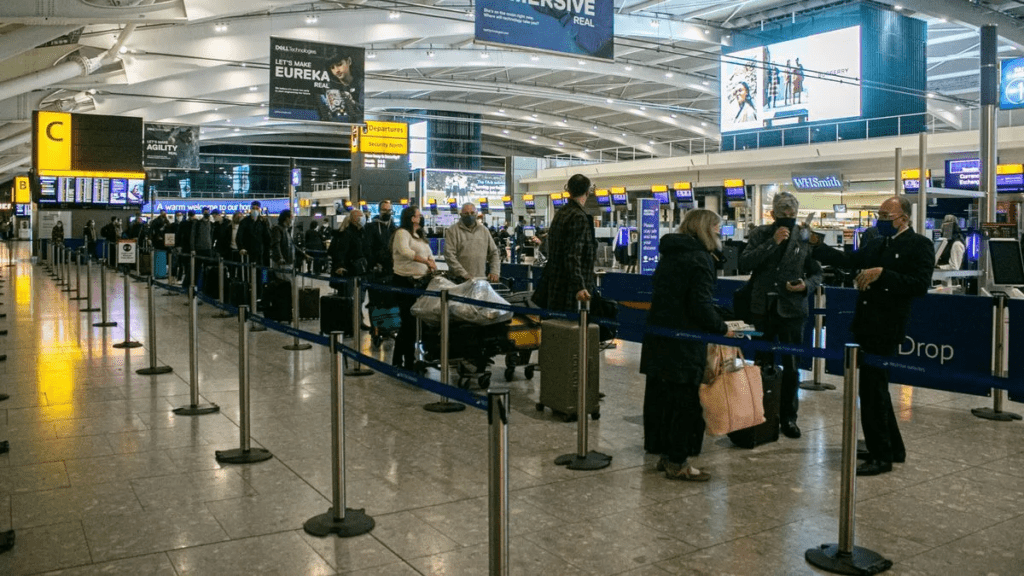
Relocation can be a crucial and transformative experience, from moving to a new country to understanding the new system and also the cultural shock that comes with such. It is essential to understand some crucial tips when planning on moving to a new country or a new place, whether you’re going alone or with your dependents as African Migrants.
This ultimate guide aims to provide practical advice, resources, and encouragement to help African migrants successfully navigate their path in a new country.
1. Preparing for the Move
Research Your Destination
Before making the move, thorough research about your destination is crucial. Understand the culture, climate, cost of living, job market, and legal requirements. Websites like Expatistan and Numbeo can provide detailed cost-of-living comparisons, while government websites and forums like Expat.com offer valuable insights into legal and cultural aspects.
Documentation and Legal Requirements
Ensure all your documents are in order. This includes your passport, visa, educational certificates, and any other essential documents. Keep both digital and physical copies. Understand the visa requirements and application process well in advance, and consult with immigration services or a legal advisor if necessary.
Financial Planning
Financial preparation is vital. Budget for initial expenses, including accommodation, transportation, food, and unforeseen costs. Open an international bank account if possible and consider transferring funds to your new country before you move.
Health and Insurance
Check health requirements such as vaccinations. Purchase health insurance that covers you in your new country. Research healthcare facilities and services available in your destination to be prepared in case of medical needs.
2. Initial Settlement
Finding Accommodation
Start with temporary accommodations such as hostels, Airbnb, or short-term rentals. Once you have a better understanding of the local areas, look for long-term housing. Websites like Airbnb, Booking.com, and local rental sites can be helpful.
Understanding Local Transportation
Familiarize yourself with the local transportation system. Whether it’s buses, trains, or bike-sharing services, knowing how to get around will make your initial days much easier. Apps like Google Maps, Citymapper, and local transit apps are invaluable.
Getting Connected
Obtain a local SIM card and internet access. Communication is crucial, especially in the initial days. Companies like Vodafone, T-Mobile, and local telecom providers offer various plans.
3. Cultural Adaptation
Embrace the Local Culture
Learning about and respecting the local culture will ease your transition. Participate in community events, try local foods, and learn the language. Apps like Duolingo or language exchange meetups can be helpful.
Build a Support Network
Join local and online communities of fellow migrants and locals. Websites like Meetup, local Facebook groups, and community centers can help you connect with others. Building a support network can provide emotional support and practical advice.
Educational Opportunities
If you’re moving with children, research the education system and available schools. For adults, consider enrolling in language classes or professional courses to enhance your skills and integrate more easily into the local job market.

4. Employment and Career Development
Job Hunting
Start your job search early. Update your resume to match the local style and begin networking. Websites like LinkedIn, Indeed, and local job boards are great resources. Attend job fairs and networking events to meet potential employers.
Skill Enhancement
Consider upgrading your skills to match the demands of the local job market. Online platforms like Coursera, Udemy, and local institutions offer courses that can make you more competitive.
Entrepreneurial Opportunities
If you’re entrepreneurial, research the local business environment. Understand the legal requirements, market conditions, and available support for starting a business. Government websites and local business associations can provide valuable information.
5. Legal and Financial Stability
Understanding Legal Rights
Familiarize yourself with your legal rights and obligations in your new country. This includes understanding your rights as a tenant, employee, and resident. Local legal aid organizations and government websites are good resources.
Financial Management
Open a local bank account and understand the local banking system. Learn about taxes, social security, and other financial obligations. Financial literacy courses and resources can be very helpful.
Staying Informed
Stay updated with local news and regulations. Join local migrant support groups and organizations that can provide updates and assistance.
6. Emotional and Mental Well-being
Mental Health Resources
Moving to a new country can be stressful. Seek out mental health resources if needed. Many countries have hotlines, counseling services, and community support groups that can help.
Maintain Connections Back Home
Stay connected with family and friends back home. Regular communication can provide emotional support and help reduce feelings of isolation.
Stay Active and Healthy
Engage in physical activities and maintain a healthy lifestyle. Join local gyms, and sports clubs, or simply explore your new surroundings on foot.
Conclusion
Navigating life in a new country as an African migrant comes with its unique set of challenges and rewards. By preparing thoroughly, embracing the local culture, building a support network, focusing on career development, and taking care of your well-being, you can successfully transition and thrive in your new environment. Remember, the journey may be challenging, but with determination and the right resources, you can build a fulfilling life in your new home.

